I love the way Josh Ross begins his final chapter in Coreology, by reminding us of the teachings of our Lord Jesus and asking if we truly believe that he means what he says.
The first will be last and the last will be first. Did Jesus really mean that or was he exaggerating to make us think about our relationships with God?
Whoever wants to become great among you must be your servant. Was Jesus really rejecting James’ and John’s request for seats of honor and giving them a vision of service instead?
Whatever you did for one of the least of these, you did for me. Was Jesus being literal, or was he just making a point?
I came not to be served, but to serve, and to give my life. Is that devotion to serving others for Jesus alone or is that the eternal model for you and me?
Josh holds up service as his sixth spiritual practice that will keep us from losing our Christian witness during this national election season.
#6 – I will choose to regularly serve others.
The 4th century Jewish historian Eusebius chronicled life and death in Caesarea during a terrible plague. Most people got out of Dodge. Eusebius tells us the Christians all stayed in town to serve:
“All day long some of them [Christians] tended to the dying and to their burial, countless numbers with no one to care for them. Others gathered from all parts of the city a multitude of those withered from famine and distributed bread to them all.”
You don’t do these kinds of things unless you have sworn your allegiance to a different King and Kingdom.
Roman Emperor Julian, just a few decades later, urged the Empire’s pagan priests to imitate the charity and service modeled by Christians. Seriously. A pagan emperor was urging his pagan priests to behave more like Christians because of the good they brought to the world:
“The Christians support not only their poor, but ours as well. All people see that our people lack aid from us.”
The Kingdom of God and discipleship to Jesus spread all over the world because our Christian ancestors captured the attention of their pagan neighbors through their character, morality, friendship, and sacrificial service to others.
Josh writes, “If Paul were alive today, we’d be getting a letter.” The apostle’s letter would remind us that Jesus didn’t die and rise again for people to submit to a national party, a partisan leader, or a worldly agenda, but to the Kingdom that is above all kingdoms and to the King who is above all kings. And to his politics of service and love.
Imagine, Josh continues, if service became a regular part of our lives. Don’t you know it would help us to envision a world that is bigger than our own little story? Lives of service have always been one of the most noticeable ways to show that our hearts have been given over to Jesus. By lives of service, I mean the intentional things we do: holding doors, moving the neighbor’s trash can, paying for a stranger’s meal, and returning shopping carts at the grocery store. But it’s also volunteering with non-profits, feeding the hungry, and tutoring kids at the local elementary school. Service reminds us that we are part of a bigger story than ourselves.
Service is an overflow of God’s love for us. We don’t serve in order for God to love us, but because he loves us and gave himself so freely for us.
Service is at the core of the heart and mission of our Lord Jesus and so it must be a major and consistent part of our lives, too.
Josh concludes his book by asking us to imagine an election season in which disciples of Jesus have demonstrably renounced the ways of the world and are truly following Christ. I’m going to finish this series of posts by giving you the last lines of Coreology here:
Imagine if followers of Jesus diligently decided to take seriously our confession that Jesus is the Lord of our lives and nothing else is. How could we not live with greater loyalty and passion?
Imagine if Jesus-followers were to create and honor spiritual practices that keep us rooted in God. Can’t you envision how we could live in greater peace and meaning?
Imagine if we refuse to allow media outlets to have a loud voice in our lives. Don’t you know fear and anger would have a difficult time growing in us?
Imagine if we accept the challenge to be peacemakers. Are you able to see the role we could play in bringing God’s healing to this world?
Imagine if hospitality were to replace the internet as the primary place for conversations about what is happening in the world. Do you see how it can bring us together?
Imagine if service becomes a regular part of our lives. Can’t you see how hard it is for hatred to grow where love thrives?
Let’s be intentional, especially in election seasons, to live in a way that we will like who we are when the elections are over. Care about the world. Be educated about issues and policies. Vote if you feel the need to. But do not give your heart to any other leader or kingdom.
Your spiritual core will not be strengthened by accident. Grow in God. Grow with God. Grow for God.
Guard your heart. Protect your joy. Don’t lose your Kingdom witness. You can do this. We can do this. God can do this in us.
Peace,
Allan




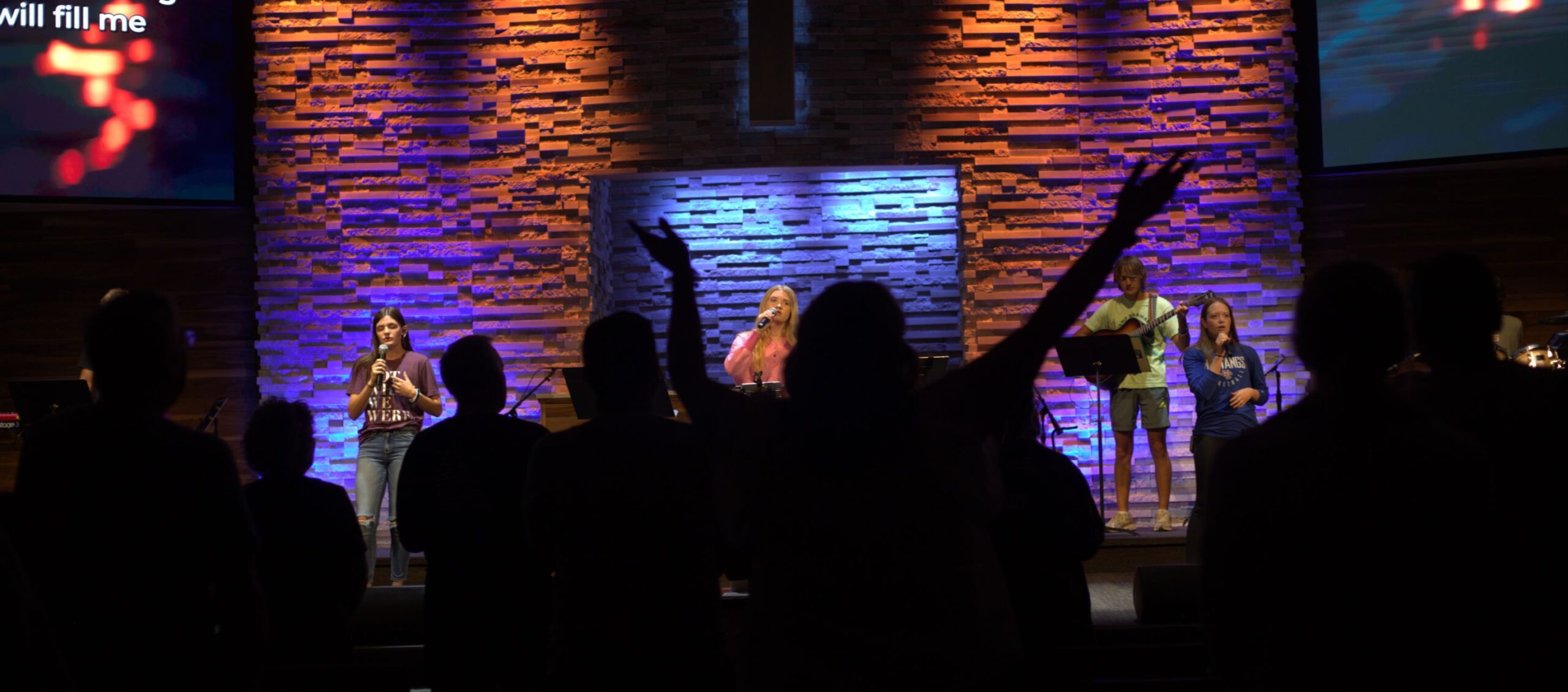
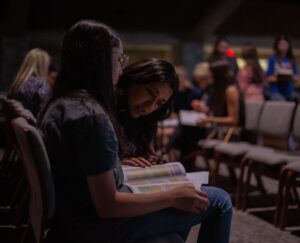
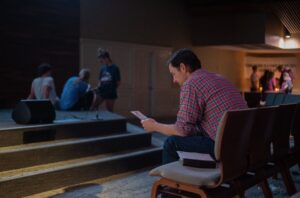
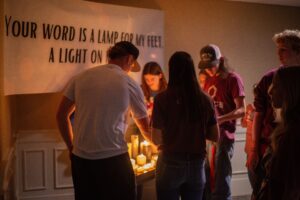


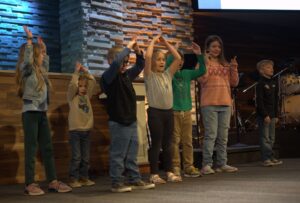
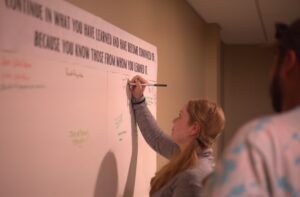

Recent Comments